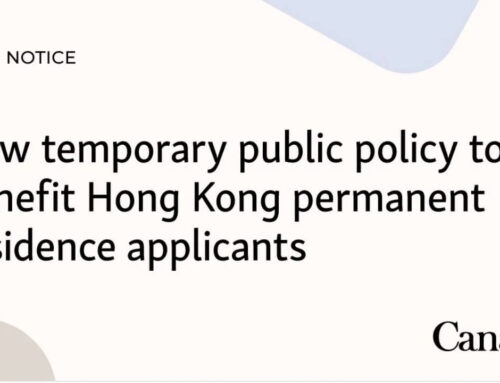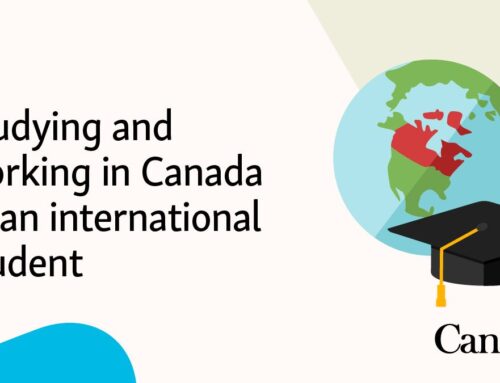How do I get a Job Offer from a Canadian Employer to Work in Canada?
This is the most asked question among immigrants trying to relocate to Canada. While there are immigrant categories where you will not need a job offer (see below), typically you will. There are a few options such as networking, headhunters or checking job boards. NEVER ACCEPT A JOB OFFER FROM SOMEONE THAT ASKS YOU TO PAY THEM FOR THEIR JOB.
Immigration Categories Not Requiring a Job Offer
- professions that do not require a work permit
- “self-employed” occupations
- certain “skilled worker” occupations
- business owners and investors
- young people on “working holidays”
- intracompany transfers from certain countries
- spouses of temporary workers and students
- spouses/partners being sponsored for permanent residence
If you are not a Canadian citizen or permanent resident, you need a work permit to come to Canada and work legally.
The first step is to get a job offer and the second step is obtaining your work permit. A job offer on its own is not a work permit. There are different kinds of work permits, depending on the job offer you receive.
There are several job boards to help search for current job listings, such as:
Canadian Job Boards
https://www.jobbank.gc.ca/home
https://www.workopolis.com/en/
How to Obtain Work Permits:
- You need to get a job offer from a Canadian employer before you apply.
- The employer must apply for a Labour Market Impact Assessment (LMIA) from Employment and Social Development Canada (ESDC).
- ESDC will decide whether the employer can hire a foreign worker to fill the job
There are special work permits for some kinds of workers. For example, there are special work permit programs for caregivers, business people and agricultural workers.
For more information, go to Working Temporarily in Canada on the IRCC website.
Once you receive your job offer, your potential employer will obtain an approved Labour Market Impact Assessment (LMIA) (unless LMIA exempt occupation) that approves the offer of employment and names you and your position on it. You MUST have an approved LMIA, unless you are in an LMIA exempt occupation. Processing times for LMIA varies, but typically varies between two to six weeks.
Once the LMIA is processed and approved, the next step is applying for the work permit from Immigration, Refugees and Citizenship Canada (IRCC) or a Canadian visa office before you come to Canada. Processing time for work permits also varies, depending on what country you are applying from and also depending on the back log with IRCC. For example, it is currently taking 34 weeks for a work permit approval in India, but only 17 weeks in Pakistan. Please note, the processing times do not include the time it takes to send an application between a VAC and IRCC, or the time needed to obtain biometrics. Due to the COVID-19 pandemic, many VAC’s have been closed. India has recently started to re-open VAC’s, so there will be a backlog to get an approved work permit from India.
Can Temporary Foreign Workers Enter Canada?
Canada is allowing the following foreign workers are now allowed to cross the border into Canada by land or air:
- Temporary workers who hold a valid work permit or who are approved for a work permit but have not yet been issued the work permit
- IEC participants who have not yet activated their work permits must have a valid job offer in order to enter
- IEC participants who have already activated their work permits and were outside the country temporarily do not require a valid job offer in order to re-enter
Quarantine Requirements
If you are traveling to Canada and do so by air, you must follow all airline requirements and pass a health check conducted by airlines before you will be allowed to board your flight. If you show symptoms of COVID-19, you will not be able to board to enter Canada.
Once you arrive in Canada, a health check will be conducted before you leave the port of entry. You must have a mandatory Quarantine plan in place for 14 days when you arrive in Canada, regardless of whether you have no symptoms. Your quarantine plan must be submitted electronically through ArriveCan before you arrive. If you don’t have a plan, you cannot travel to Canada. There are some exemptions to quarantine, such as essential services workers, for example, truck drivers who regularly cross the border to maintain the flow of goods.
If you should have any questions or need more information about getting a job in Canada, please visit IRCC’s website for additional information on temporary work permits.
There are some of you who will not be eligible for a job, but are still interested to come to Canada. Other options for relocating include student visas and business/investor visas.
If you do have a job offer and require assistance with your work permit, please contact us by emailing us at info@poonahimmigrationlaw.com or by calling us at +1 (678) 978-5848. You can also visit our Law Firm’s website at www.poonahimmigrationlaw.com.





